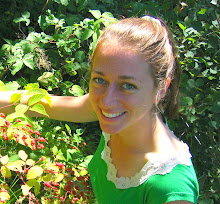As many of you may know, I have a part-time gig with the
Center for Corporate Citizenship at Boston College. Every week, I review all the CSR-related news that I can get my hands on, decide what's most interesting or important, and compile that into a News Brief that goes out to staff members of the Center. I also forward a copy to my boss at Harvard Business School, to keep him up-to-date as well.
The main reason I do this is to force myself to keep abreast of all the latest developments in the field. It's a big time commitment, and often I wish I had my weekends back - but I always end up feeling glad to be so well-informed.
Lately, I've been trying to leverage this knowledge in different ways - as has the Center. Because most of the articles are copyrighted, we can't distribute the News Brief itself, but I've begun posting news summaries on this blog every Monday, with the goal of helping anyone interested in the field stay current without a big time commitment. Also, a few months ago Martin Smith read this blog and decided that similar content would be great for
1Bloc - so I'm now writing an occasional article for that, and working toward some weekly news summaries.
Meanwhile, the Center has also been trying to leverage my time investment. I've started sending extra emails on new trends and key highlights to the woman who compiles the news section of the Center's
newsletter, which is distributed more widely. Also, someone else at the Center is planning to send the headlines-only section of my News Brief, with links, to all corporate members.
So my research is becoming the basis of three different communications at Boston College, and for three different personal purposes. In some ways, this is great - but in others, I'm starting to get concerned.
The other day, I was talking to my boss following his seminar on "
CSR and the 7 Deadly Sins" when BC professor
Sandra Waddock stopped to introduce herself. As I listened to the two of them talk, I heard them confirming each other's assessment of the key issues in the CSR field - and I wondered, how much of an influence did I have?
These two professors thought they were coming from different schools and with different experiences - but each reads my News Brief every week. In their brief discussion, they seemed to be validating each other's perceptions of current trends in the field. But if each of them was relying on the same source, the similar perceptions would be a false reassurance.
Not to overstate the issues, but Noam Chomsky makes a
similar argument about the
New York Times - that it sets the news agenda more than people realize. Seeing a topic come up in multiple news sources seems to give it more validity, and we often don't notice if all those mentions are tracing back to a single source.
The CSR world is very very small. Walk into a conference or cocktail party, and you're bound to know several people from several organizations. This can be reassuring, but it can also be counterproductive. We can end up feeling reassured that we know what's going on, simply because we share perceptions with the other members of a very small and closely-interconnected group.
I don't know exactly what to do about my newfound concern. Transparency, I suppose, is one part of an answer - and that's what I'm trying to provide in this blog-posting. Thoughtfulness in compiling my news summaries should also help - it should be an extra reason to read as much as I can and to include a diversity of opinions.
Another part of the solution would be for you, as a reader of this blog, to email me with news stories you've read, with comments when you think I've gone wrong, and with direct advice on how to address this issue in general.
One problem, however, is that I can't cover all the news that's out there - there's simply too much volume, both in terms of the hours I can devote (10 per week), and the page limit I've been given (~60 pages of articles per week). So I frequently miss out on articles. My job has not been defined as covering everything - just as putting an interesting News Brief together. But is it my social responsibility to cover more, in order to present current trends more accurately?

